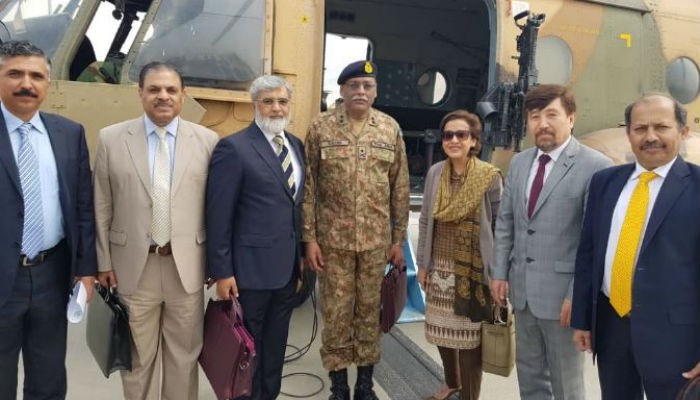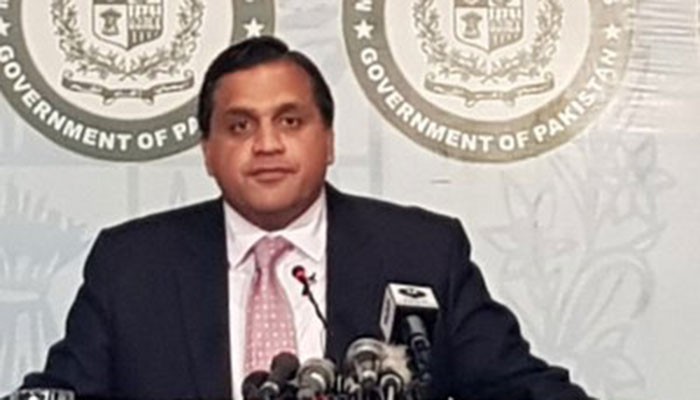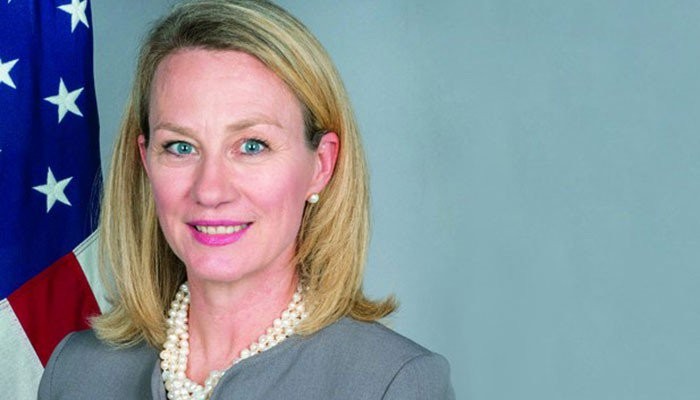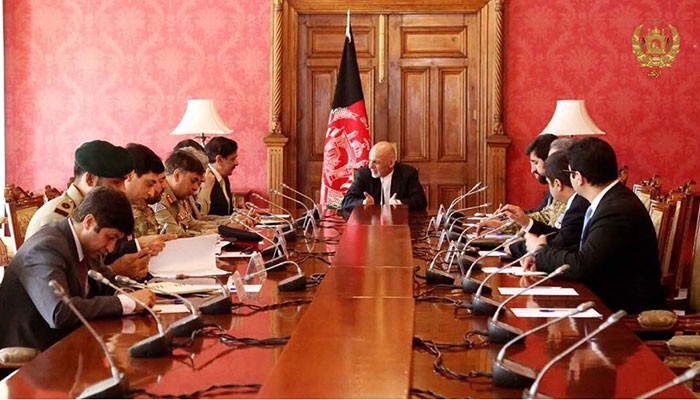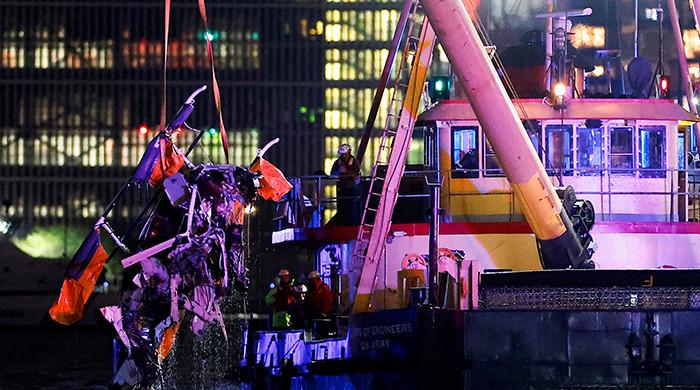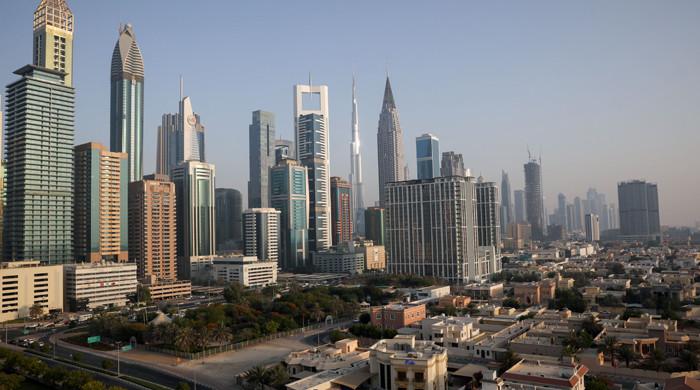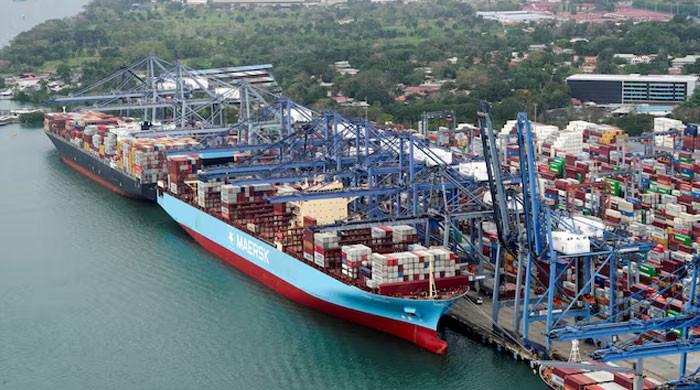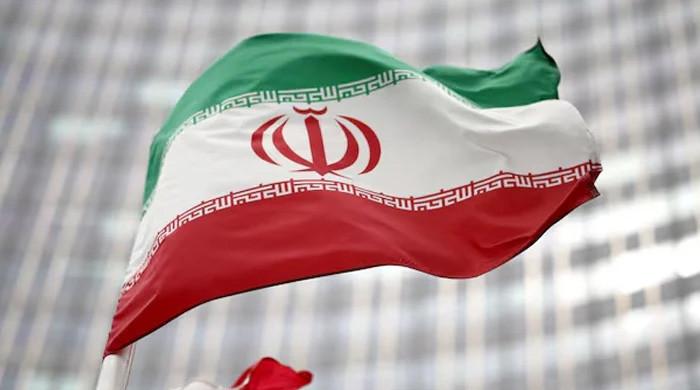Abbasi, Ghani agree on political solution to Afghan conflict
The two leaders also agree to not allow their soils to be used for anti-state activities against each other
April 06, 2018
KABUL: The leaders of Afghanistan and Pakistan promised to work together on regional security in a key face-to-face meeting on Friday, followed by delegation level talks at the Afghan Presidential Palace in Kabul.
"President Ghani and Prime Minister Abbasi discussed the entire gamut of Pak-Afghan relations including peace and reconciliation in Afghanistan, counter-terrorism, return of Afghan refugees, bilateral trade and regional connectivity," said a statement from the Pakistani prime minister's office following key meetings with Afghan president and met Chief Executive Dr. Abdullah Abdullah.
Prime Minister Shahid Khaqan Abbasi at the invitation of President Ghani is in the Afghan capital for a day-long visit, where he was accompanied by the Pakistani foreign minister, interior minister, Governor of Khyber Pakhtunkhwa province and the National Security Adviser.
According to the statement, Prime Minister Abbasi welcomed President Ghani’s vision for peace and reconciliation in Afghanistan and his offer of peace talks to Taliban.
"Both leaders called on the Taliban to respond positively to the peace offer and join the peace process without further delay. They agreed that there was no military solution to the ongoing Afghan conflict and that the political solution was the best way forward," said the statement.
"The two leaders reiterated that terrorism was a common enemy and threat. They agreed not to allow their soils to be used for anti-state activities against each other."
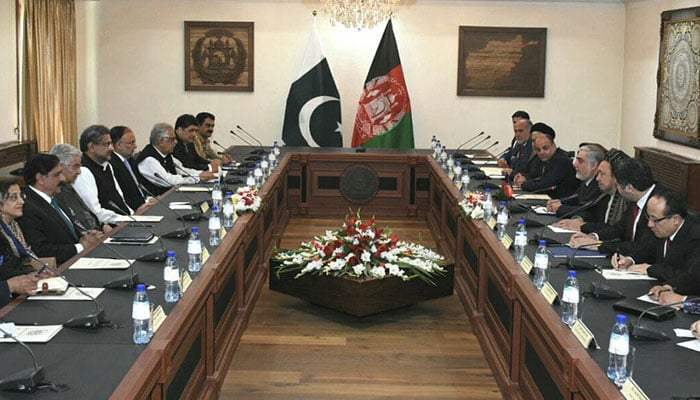
Both the leaders agreed that peace, prosperity and stability of the two countries are inter-linked, reaffirming their resolve to work together to address all issues of bilateral and transit trade. They also expressed their firm resolve not to allow politics to affect their economic relationship, which was important for the welfare of the peoples of the two countries.
The two leaders reaffirmed their commitment to regional connectivity as they did in Herat on February 23, while jointly inaugurating the entry of TAPI Gas Pipeline from Turkmenistan into Afghanistan.
"They agreed to hold an early meeting of the Joint Economic Commission to take forward planning and implementation of key rail road gas pipeline and energy projects that would integrate Pakistan and Afghanistan with Central Asia," the statement said further.
"The two leaders also agreed to move forward on Chaman-Kandahar-Herat railway line, Peshawar-Kabul Motorway, and other connectivity projects which can help realise the tremendous potential of South and Central Asian Regions by providing shortest access through the sea ports of Gwadar and Karachi. They emphasised early completion of TAPI and CASA-1000 projects."
The Pakistan premier also held a meeting with Afghan Chief Executive Dr Abdullah Abdullah. They discussed the entire range of bilateral matters and agreed on regular leadership contacts.
PM Abbasi announced a gift of 40 thousand tons of wheat for the Afghan people. He also announced waiver of additional regulatory duty on Afghan export to Pakistan to help lift the Afghan economy, the statement said further. The two sides also agreed to initiate discussions on consular matters and exchange of civilian prisoners.
The Afghan president and PM Abbasi further reaffirmed their resolve to build trust and confidence between the two countries by working closely for peace, prosperity and stability in both the states. The two leaders agreed to continue the exchange of high-level visits.
The prime minister also extended invitations to President Ghani and Chief Executive Abdullah Abdullah to visit Islamabad at their earliest convenience.
During his stay in Kabul, Abbasi also met with senior political leaders, including Gulbadin Hekmatyar, Ustad Mohammad Mohaqiq, Ustad Mohammad Karim Khalili, Pir Sayed Hamed Gailani, to convey the support of the government and people of Pakistan to all ethnic groups in Afghanistan and underscore Pakistan’s commitment to peace and stability in Afghanistan.
The visit by the Pakistan premier came in the backdrop of Pakistan's support to Ghani's peace offering to the Taliban and wish of strengthening bilateral engagement with Islamabad.
Abbasi had earlier visited Afghanistan in February this year to inaugurate the TAPI gas pipeline project. The two sides are also engaged in undertaking major bilateral rail-road connectivity projects.
Pakistan urges Kabul to avoid 'blame games'
However, the promising atmosphere surrounding the trip was marred Thursday night after Pakistan urged Kabul to refrain from "blame games" following allegations by Afghanistan that the Pakistan Air Force violated Afghan airspace.
FO spokesperson Dr Mohammad Faisal said in a series of tweets clarified that Pakistani security forces are undertaking counter-terrorism operations in Bajaur Agency, directed against terrorist groups who continue to attack Pakistan from their sanctuaries based on Afghan soil.
“Pakistan urges Afghanistan to focus on taking effective counter-terrorism actions including plugging of large gaps existing along the Afghan side of Pakistan-Afghanistan border to prevent the targeting of Pakistani civilians and security forces by terrorists from Afghan soil," he said in one of the tweets.
Flurry of activity
US Department of State’s Principal Deputy Assistant Secretary for South and Central Asia Alice Wells completed a week-long visit to Pakistan on April 3 where she held meeting with top civil and military officials.
She noted the meaningful role that Pakistan, partnering with the United States, could play in achieving a peaceful resolution in Afghanistan, a press release by the US embassy had said.
After her meeting with the Chief of Army Staff General Qamar Bajwa, the army had said in a statement that Pakistan also expects other players in the region to play an equally positive part.
Earlier this week, a high-level Pakistani delegation led by Foreign Secretary Tehmina Janjua met President Ghani and other Afghan officials to discuss various important issues.
The delegation comprised senior civil and military officials, including Director General Military Operations Maj Gen Shamshad Mirza. It arrived in Afghanistan to hold talks on the Afghanistan-Pakistan Action Plan for Peace and Solidarity (APAPPS).
Prior to that, Pakistan's National Security Adviser Lt Gen (retd) Nasser Janjua also held separate meetings with President Ghani and Chief Executive Abdullah during his visit to Kabul.
It was during his meeting with Janjua that Ghani invited Abbasi to Kabul to "initiate a state-to-state comprehensive dialogue."
